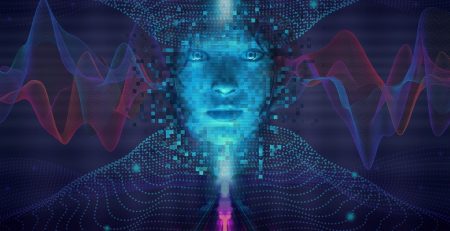The Death of Coding
Is Coding Dying? The Impact of Generative AI
The world of software development is buzzing with talks of generative artificial intelligence (GenAI) spelling the death of coding as we know it. With tools like GitHub Copilot, ChatGPT, and DALL-E demonstrating remarkable capabilities in understanding and generating human-like text, code, images, and more, there’s a palpable sense of disruption in the air. Are the days of manual coding numbered? Will GenAI render traditional software developers obsolete?
While the hype around GenAI is undeniable, the reality is far more nuanced. Rather than signalling the demise of coding, this cutting-edge technology is ushering in a paradigm shift that promises to reshape the way we create software and redefine the role of developers. GenAI is not just automating tasks but empowering a new breed of “AI-powered coders” and “citizen developers,” democratizing software creation and fostering innovation in ways never imagined.
The AI-Powered Coder
At the forefront of this revolution are “AI-powered coders” – developers leveraging generative AI tools to boost their productivity, creativity, and efficiency. Tools like GitHub Copilot act as pair programmers, suggesting code completions, generating entire functions, and even translating code between programming languages – all based on natural language prompts or existing code context. This AI-powered coding experience transforms how developers work, allowing them to focus on higher-level problem-solving and design rather than getting bogged down in the nitty-gritty of coding.
Automating the Mundane
One of the key strengths of generative AI in coding is its ability to automate repetitive, mundane tasks. These AI models can handle software development’s tedious aspects, from code generation and optimization to test coverage and debugging, freeing developers to concentrate on more complex and creative endeavours. This increases productivity and reduces the risk of human errors and inconsistencies, leading to higher-quality code.
Empowering Citizen Developers
Perhaps even more disruptive is the rise of “citizen developers” or “citizen coders” – non-programmers who can now build applications using low-code/no-code platforms and natural language prompts to generative AI models. Platforms like Mendix or Appian allow citizen developers to build simple mobile applications using drag-and-drop interfaces and pre-built components. This empowers businesses to create custom applications without relying solely on professional developers, improving agility and responsiveness to changing needs.
This democratization of software development means anyone with a logical mindset and a basic domain understanding can leverage AI to create custom applications without extensive coding knowledge. This could lead to an explosion of innovation as people from diverse backgrounds can bring their unique perspectives and ideas to life through software.
The Changing Role of Developers
As generative AI and citizen developers take centre stage, the role of traditional software developers is undergoing a significant transformation. While some fear AI will replace coders, the reality is more nuanced. Developers will still be in high demand, but their focus will shift from rote coding to more complex tasks such as system design, architecture, and managing the outputs of generative AI models. They will act as guides and curators, ensuring the AI-generated code aligns with project requirements, follows best practices, and adheres to security and ethical standards.
Reskilling and Adaptation
Developers must adapt and acquire new skills to thrive in this new coding paradigm. Prompt engineering – the art of crafting effective natural language prompts for generative AI models – will become a crucial skill. Developers will also need to understand the intricacies of AI model management, including fine-tuning models, mitigating biases, and addressing potential security vulnerabilities. Moreover, effective human-AI collaboration will be essential, as developers must work with AI tools to achieve better results.
Ethical and Security Considerations
While the potential of generative AI in software development is exciting, it also raises ethical and security concerns. AI models can perpetuate biases in their training data, leading to discriminatory outputs or unintended consequences. Additionally, the generated code may contain security vulnerabilities or plagiarized content, posing significant risks if not properly vetted. Responsible development practices, including rigorous testing, auditing, and ethical guidelines, will be crucial in ensuring the safe and ethical deployment of AI-generated code.
The Future of Coding
Despite the concerns, the future of coding looks bright, thanks to generative AI. This technology democratises software development, fosters innovation, and empowers a new generation of creators. While traditional developers will still be essential, their roles will evolve, becoming more strategic and focused on guiding the AI’s outputs and solving complex problems. The coding landscape is undergoing a profound transformation, promising to reshape how we create software and push the boundaries of what’s possible. Coding may not be dead, but it’s certainly experiencing a renaissance – a rebirth fueled by the power of human-AI collaboration.











Comment (1)
[…] Check out my previous article here – The Death of Coding – Digital Automation and Robotics (digitalautomationandroboticsltd.com) […]